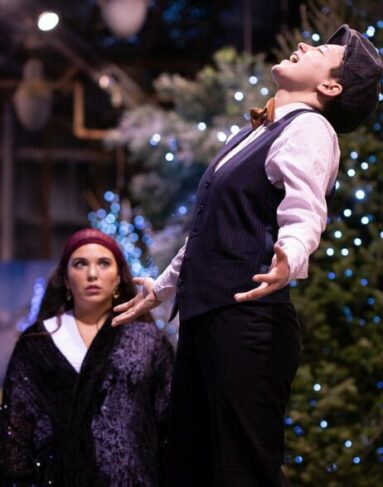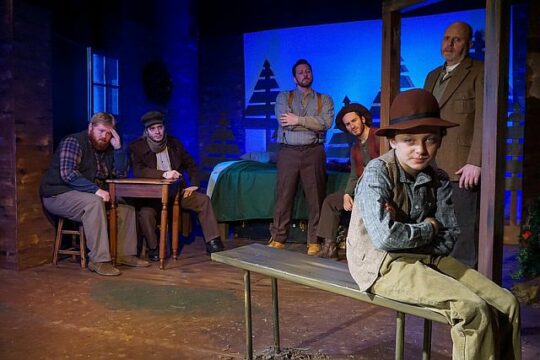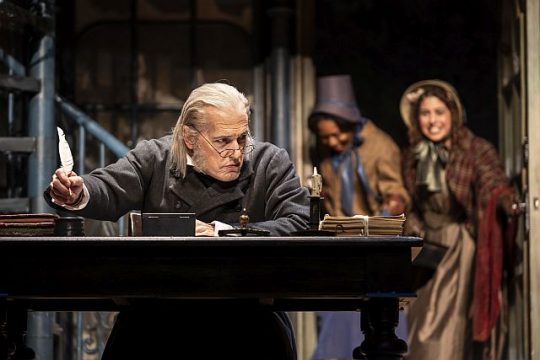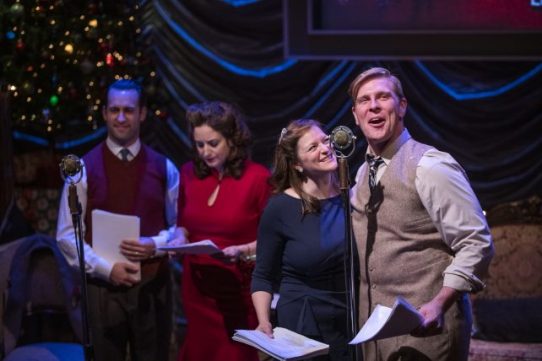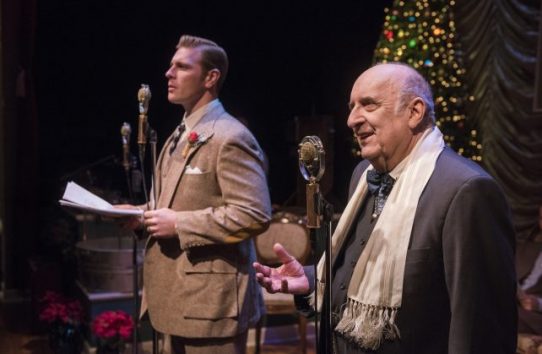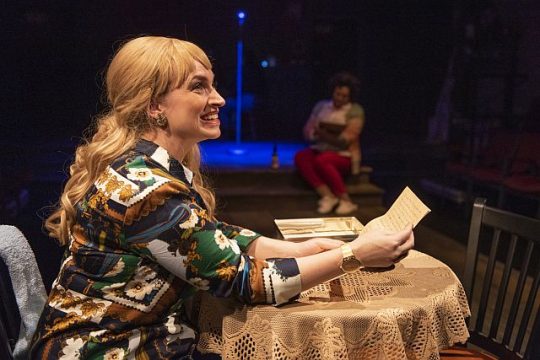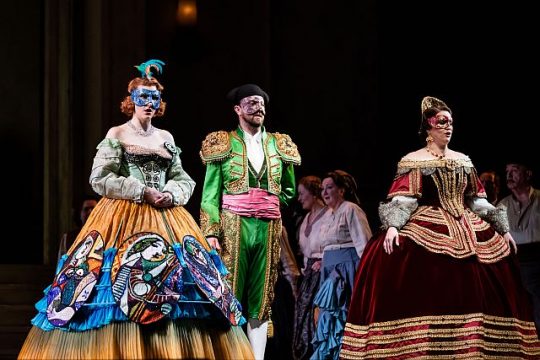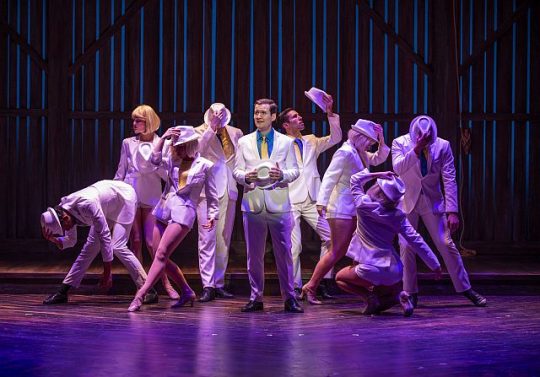
4 stars
Adapted from Eric Kimmel’s beloved holiday picture book which earned the 1990 Caldecott Honor Award, this 60-minute holiday presentation of “Hershel and the Hanukkah Goblins”is back for another Hanukkah season at Strawdog Theatre. The production is done almost totally in-the-round and without an intermission.
Written by ensemble member Michael Daily, this is a family entertainment piece that features spirited ethnic music and lyrics by Jacob Combs . A six-member troupe portray an array of characters who play a variety of musical instruments, pack up their belongings and take their act on the road.
Resembling a holiday variety show aimed at younger audiences, this lively, laugh-provoking entertainment is actually a play-within-a-play. Through music, folk dance, puppetry and the audience’s own imagination, the play tells the story of a Jewish folk hero named Hershel of Ostropol.
A clever trickster, kind of like a European version of Anansi the Spider or a witty Hebrew cousin of the American Br’er Rabbit, Hershel is portrayed this year with glee by ensemble member Jack Morsovillo.
He’s supported by a company of multi-talented actors and musicians who include Sarah Bacinich, Brianna Joy Ford, Cohen Kraus, Josh Pennington and Leo Zhu.
After traveling a long way, the troupe stops at a village where they ask the local innkeeper for food and a place to sleep. Penniless, the troupe leader offers to entertain the man and his guests (the audience) in exchange for his generosity. Finally, given the opportunity, the company of players perform the tale of Hershel of Ostropol.
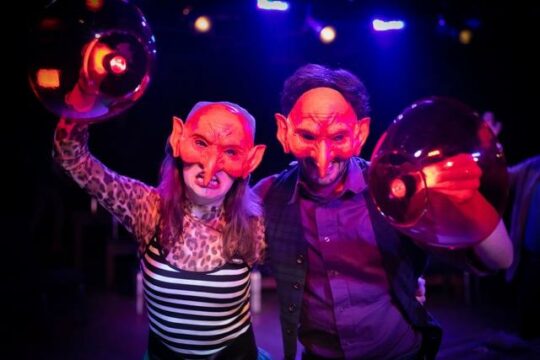
In the play, Hershel has discovered a sad little town where Hanukkah is no longer celebrated. The reason for this, the townsfolk lament, is that their temple has been overtaken by goblins who forbid the townspeople to light the Menorah candles.
Hershel accepts the town’s challenge to spend the next eight nights in their temple, whereupon he’ll try to trick the goblins, including the fearsome Goblin King, into lighting the Menorah themselves, and thus bring brightness and holiday joy back to the village.
The production is guided with spirit and sparkle by Lauren Katz. She artfully draws out the skills and strengths from each of her ensemble members and keeps her production in constant motion. Yair Farkas musically directs this talented cast, all suitably attired in clownish costumes courtesy of Elle Erickson.
Prior to each performance, there are arts and crafts activities in the lobby. Strawdog Theatre’s second helping of the family holiday entertainment is foxy, fun and filled with music. It radiates with warmth, wonder and humor.
Youngsters already familiar with Eric Kimmel’s delightful picture book will enjoy seeing the story come to life. Learning how Hershel gets the best of a band of bogeymen in order to restore Hanukkah to a town plunged into darkness, is great fun for audiences of all ages.
DETAILS: “Hershel and the Hanukkah Goblins” is at Strawdog Theatre, 1802 W. Berenice, Chicago, Saturdays and Sundays, Dec.7-29, 2019. Running time: one hour. For tickets and other information visit Strawdog.
Colin Douglas
Additional information about this and other area productions can be found by visiting TheatreInChicago.

